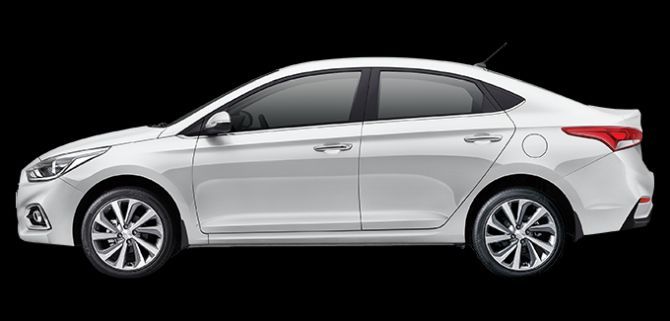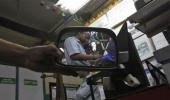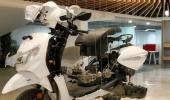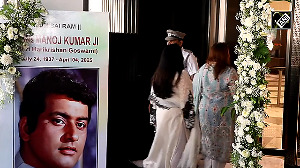The entire range of Hyundai’s diesel cars - from compact ones to SUV models, including the soon-to-be-launched Aura - will be eco-friendly.

Going against automobile sector trend, Hyundai Motor India is betting big on diesel while its peers are moving away from it ahead of the implementation of Bharat Stage VI (BSVI) norms.
From April 1, 2020, BSVI emission norms for automobiles will become mandatory across the country.
Hyundai is looking to have a monopoly in the compact diesel car segment, which includes sedans and sports utility vehicles (SUVs) smaller than 4 metres.
“With the implementation of BSVI, we are betting big on diesel engine options,” said S S Kim, managing director and chief executive, Hyundai.
Kim said at present Hyundai is offering BSVI-compliant petrol engine options for its newly launched Grand i10 Nios and new 2019 Elantra.
Most of its competitors have cited the high cost of converting BSIV-compliant small diesel engines into BSVI-compliant ones for exiting the segment.
The entire range of Hyundai’s diesel cars - from compact ones to SUV models, including the soon-to-be-launched Aura - will be eco-friendly, said Kim.
Passenger vehicle makers such as market leader Maruti Suzuki India, Mahindra and Mahindra, Tata Motors, Honda Cars India, Toyota Kirloskar Motor, Volkswagen India, and Renault India have announced plans to pull the plug on diesel variants (those powered by 1.2- to 1.3-litre engines).
According to industry estimates, prices of small BSVI-compliant diesel cars could rise by Rs 1.3 lakh to Rs 1.5 lakh per unit.
Most carmakers believe buyers will not pay so much.
Hyundai, however, is unruffled.
Vikas Jain, national sales head, Hyundai, said demand for diesel cars would continue, provided one was “able to offer a good product at a good price”.
He added that even though the share of diesel among cars sold was going down, volumes had continued to rise.
Regulations, shifting buyer preference, and a narrowing price difference between diesel and petrol cars have led to a consistent drop in demand for the former.
In the first seven months (April–October) of 2019-20, the share of diesel vehicles in the sales mix of PVs fell 32 per cent year-on-year.
Last year, the share had dropped 38 per cent.
In 2013-14, diesel vehicles commanded a share of 58 per cent among PVs.
For Hyundai, on an average, diesel models account for 38.75 pe rcent in total sales.
But Jain expects this to rise sharply from April 2020 when it launches BSVI-compliant variants. Rival exiting the segment will also benefit it.
“Our presence in diesel will get stronger in compact SUV, sedan and small car segments,” said Jain, adding diesel vehicles provided better torque and fuel efficiency.
Till now, Hyundai’s diesel cars - i20, Accent, and Verna - have hardly been able to compete with Maruti’s diesel cars, Dzire, Swift, and Brezza.
Not everyone is as enthusiastic about Hyundai’s prospects.
“I am not entirely sure if Hyundai will be able to offer BSVI-compliant diesel models at an affordable price point.
Unless they absorb a significant share of the costs, it is going to be challenging,” said Kaushik Madhavan, vice-president, mobility, at consulting Frost & Sullivan.
Others feel the road ahead for Hyundai is good.
Puneet Gupta, associate vice-president at IHS Markit, a sales-forecasting and market-research firm, said Hyundai will emerge as the strongest player in terms of fuel-type options by 2020.











 © 2025
© 2025